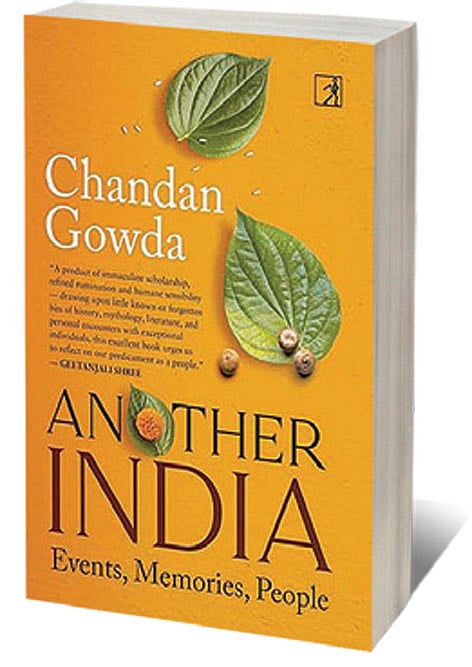Of Kings and Mystics

MANY STORIES IN Chandan Gowda’s new book celebrate the unconscious socialism of village life. In a story categorised under the section ‘Janapada/ Words of the People’, Thimmi, a servant girl, chances upon a pot of sweet rice cooking on a communal stove and decides to eat it, illicitly, inside the temple of Goddess Kalagattamma. Thimmi is angered when she catches the goddess looking at her and threatens to scratch her face if she doesn’t turn around and allow her to savour the meal in solitude. The goddess is left with no choice but to obey. Alarmed at the idol’s reversed position, the temple priest announces a reward for restoring it. Thimmi volunteers, employing the same threat that had forced the goddess to turn away to return her to the original position. Rewarded with land, Thimmi then goes on to live a contented life, leaving the employ of the headman. Gowda has handpicked the story from a half-century-old anthology of Kannada folktales by JS Paramashivaiah, and translated it with this comment: “The cooperative charity of the travelers, the goddess’ recognition of Thimmi’s moral worth as higher than that of her despisers, the affirmation of a life outside bondage, all of these narrative elements let us glimpse the imagination of a village community engaging fundamental ethical matters. Besides, Thimmi’s desire to be left alone by the goddess, her intimidation of the goddess and her concealing of her thoughts from the goddess depart from the usual idea of God as all-knowing and all-powerful and disclose an imagination of a freer, more supple human relationship with the divine.” In a departure from his tendency to let the stories speak for themselves, Gowda carefully frames and contextualises this one, revealing his excitement at excavating delightfully unusual paths in the Kannada cultural imagination—paths that open up to sweeping, passionate and poignant views of the land and its people.
Another India is a collection of essays, ranging from straightforward portraits of popular personalities like the late actor Rajkumar and his son Puneeth to vignettes of faith and worship that force us to rethink our understanding of the nature of religious belief, and encounters with texts like Manasollasa and Gandhi’s Hind Swaraj. We meet obscure women mystics and well-known kings, local wrestlers including a Mysore royal, working class goddesses who spin the charkha and write letters to their kin, Kannada scholars and writers like Kuvempu, UR Ananthamurthy, Poornachandra Tejaswi, Siddalingaiah, Devanur Mahadeva, Masti Venkatesha Iyengar and others through whose work many of us continue to develop an existential sense of ourselves as individuals in larger social worlds. Perhaps no contemporary writer writing in English has framed such an inclusive mosaic of viewpoints from Kannada society, weaving voices from intellectual and so-called ‘folk’ traditions together. Outside the realm of the Kannada modern, Gowda repeatedly engages with the ideas of Ram Manohar Lohia, Jayaprakash Narayan and Gandhi. “The popular—as well as intellectual— amnesia towards JP’s efforts to craft a democratic vision that was organic to modern India is a scandal,” he writes, offering a close reading of the inner life of Narayan’s work.
AIming High
20 Feb 2026 - Vol 04 | Issue 59
India joins the Artificial Intelligence revolution with gusto
Equal parts storyteller, historian, sociologist and anthropologist, Gowda writes with remarkable restraint and economy, holding back judgement while offering generous glimpses into India’s moral and religious traditions and shining a light on mythmaking as cultural history. He retells stories from the folk tradition not only to bring us face-to-face with intellectual inheritances from the past but also to foreground the policy indifference towards rural India. There is also the occasional philological essay—he writes, for instance, of how “the word ‘mela’ has become hitched to modest, limited-purpose occasions”—and retellings of episodes from the past century, such as an account of a village land survey from the mid-1930s, that speak to the passage of time and of intellectual and empirical attempts to suture historical experience. Although rooted in Karnataka, Gowda’s ideas are universal and syncretic and his approach conciliatory. Taken together, the essays offer much intellectual nourishment and paint a portrait of the author as a transdisciplinary thinker who uses the past to imagine different futures.

